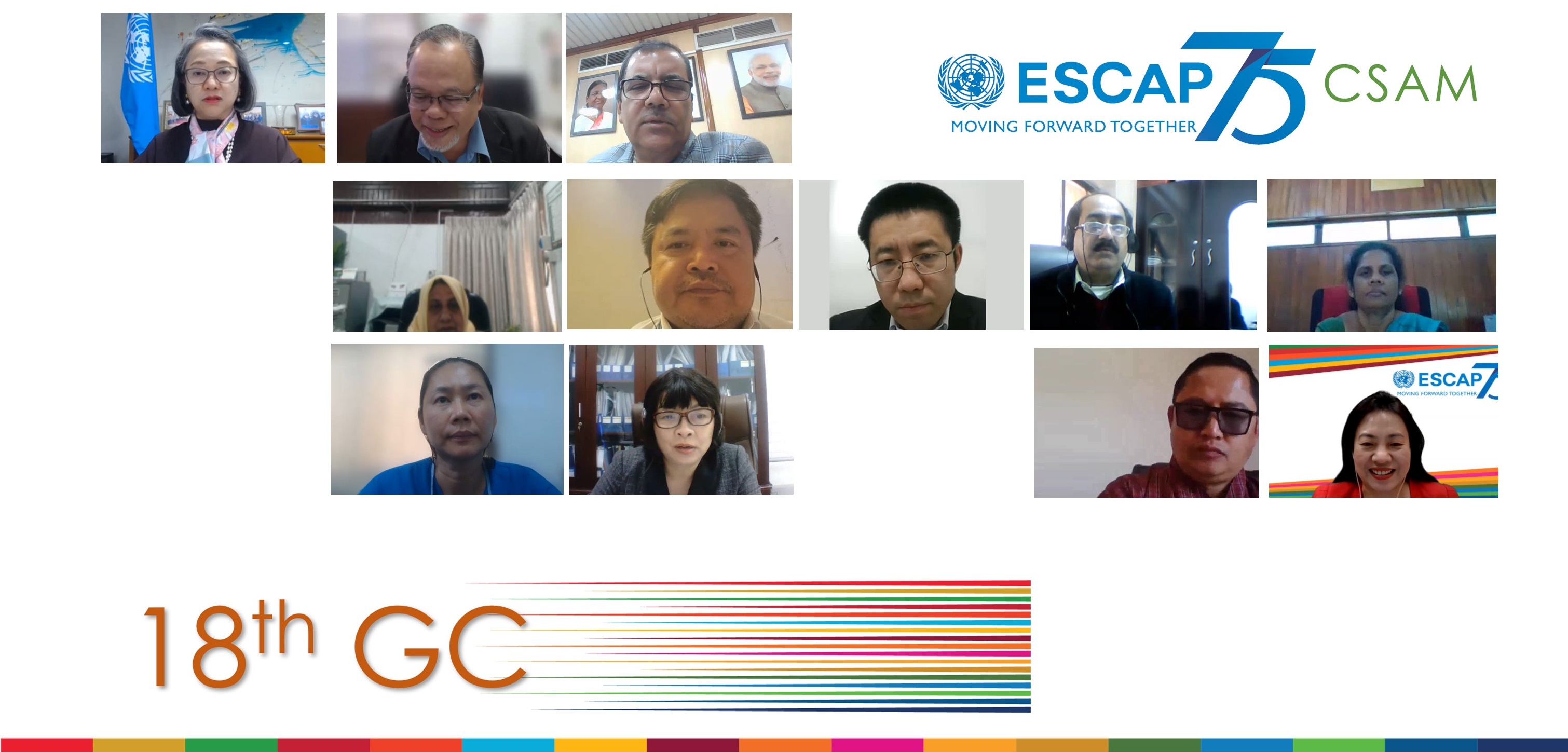CSAM’s Governing Council Appreciates Progress in Implementation of its Programmes in 2022

The Eighteenth Session of the Governing Council of the Centre for Sustainable Agricultural Mechanization (CSAM) of the United Nations Economic and Social Commission for Asia and the Pacific (ESCAP) was held virtually on 9 December 2022. The Council meets annually to review the work report as well as the administrative and financial status of the Centre, and to provide direction for the Centre’s programme of work for the coming year.
The Eighteenth Session was attended by all nine members of the Council, namely Bangladesh, Cambodia, China, India, Malaysia, Pakistan, Sri Lanka, Thailand and Viet Nam. Representatives from Bhutan and the Republic of Korea also attended the meeting as observers.
The Governing Council elected Dr. Azman bin Hamzah, Director, Engineering Research Centre, Malaysian Agricultural Research and Development Institute, Malaysia, as the Chair of the Eighteenth Session and Dr. Shyam Narayan Jha, Deputy Director-General, Indian Council of Agricultural Research, Department of Agricultural Research and Education, Ministry of Agriculture and Farmers’ Welfare, India, as the Vice Chair.
In her welcome remarks at the opening of the Session, Dr. Armida Salsiah Alisjahbana, United Nations Under-Secretary General and Executive Secretary of ESCAP, said that CSAM has greatly benefited from the strong support, guidance and partnership of the Council members and thanked the Government of the People’s Republic of China, CSAM’s host country, for its generous financial contributions and office space for the Centre. She also thanked other members of the Governing Council for their financial contributions to CSAM.
During the Session, the Governing Council complimented CSAM on the good progress achieved in the implementation of its programmes and activities in 2022. It recommended that CSAM continue to promote climate-smart mechanization including conservation agriculture as well as capacity building for sustainable agricultural mechanization. In addition, the Council highlighted the importance of promoting automation, precision and ‘smart’ technologies in agriculture through knowledge exchange.
On the occasion, the Governing Council also discussed and underscored the need for gender mainstreaming in sustainable agricultural mechanization in Asia and the Pacific. It recognized that with the rising number of women in the agricultural work force who face increasingly hard labour tasks, gender considerations are becoming even more urgent to ensure food sustainability. Various members shared their countries’ actions and achievements in the areas of gender mainstreaming in agriculture and mechanization, from increase in admission of women to college courses on agricultural engineering to the work of centres dedicated to technology for women in agriculture. The Council also recommended that CSAM conduct a dedicated event to study the situation in the region on gender mainstreaming in agricultural mechanization and support the contribution of women farmers to food production.
